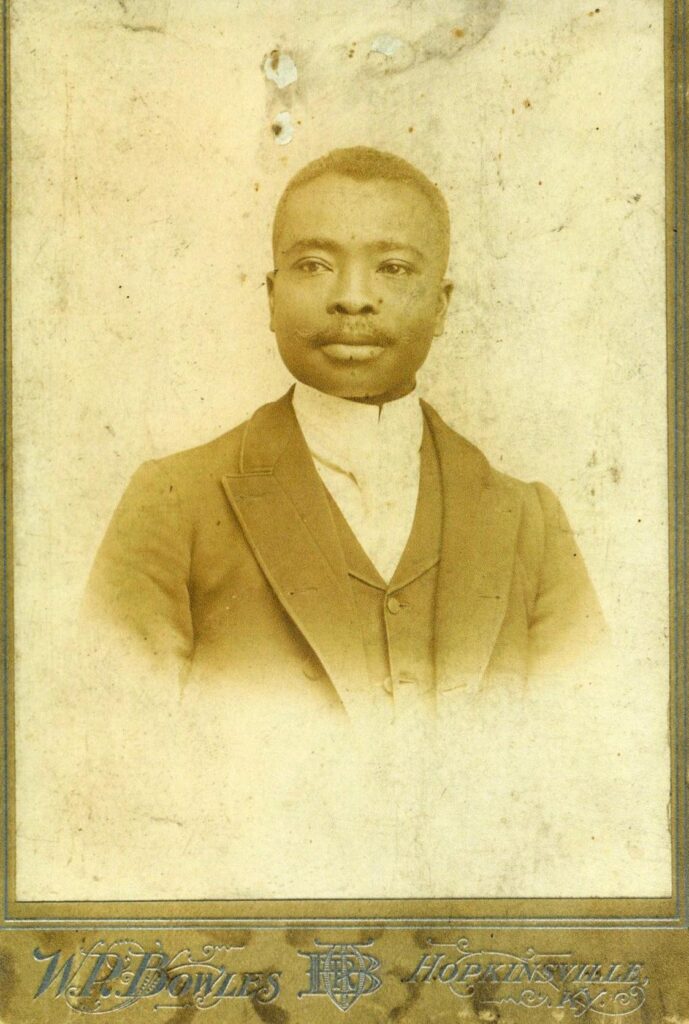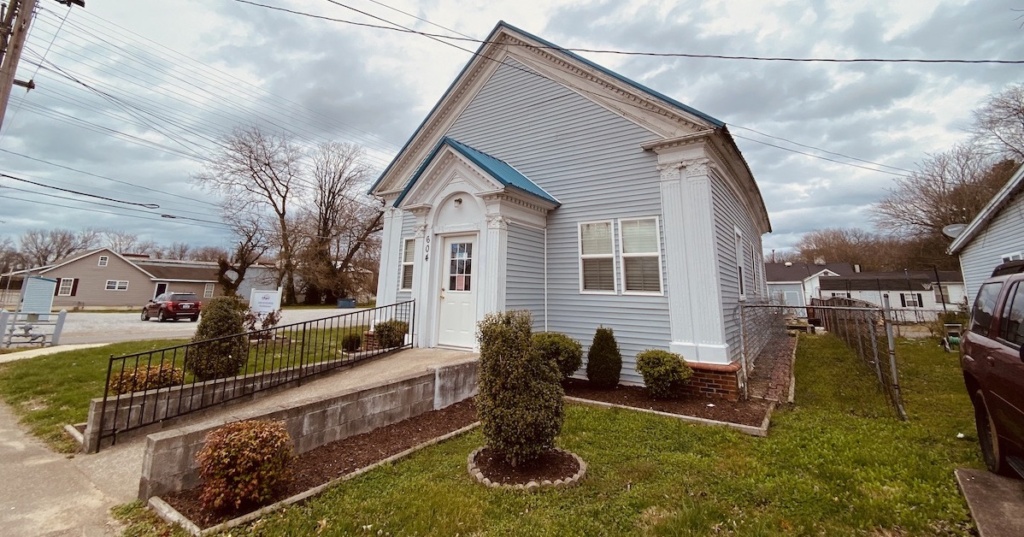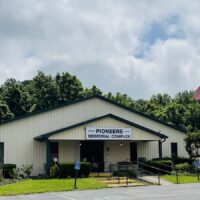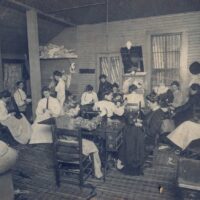The Rev. A.H. McNeil, an early Black clergyman for the Episcopal church, lived in Hopkinsville for less than 10 years as the ordained deacon and minister for the Chapel of the Good Shepherd. He died on Jan. 14, 1901, of a stroke at age 41 just days after qualifying to become a priest, said the Rev. Stephen Spicer, rector of Grace Episcopal Church.
But McNeil’s legacy in Hopkinsville has endured well beyond his somewhat brief tenure with the church. The former Good Shepherd building at Second and Campbell streets has housed the Aaron McNeil Center for the past 50 years. As a crisis relief agency, it provides a food pantry, commodity distributions and financial help for residents who need assistance paying utility bills, rent and other expenses. Thousands of Christian County residents get help every month at the center.

A commemoration of McNeil’s life, sponsored by the Commission on Racial Healing for the Episcopal Diocese of Kentucky, is planned at 11 a.m. Saturday, Oct. 15, at Grace Episcopal.
The bishop for the Diocese of Kentucky, the Rt. Rev. Terry Allen White, will celebrate the eucharist service. Spicer will give a commemoration of McNeil’s life, and Kurt Anderson, executive director of the Aaron McNeil Center, will have brief remarks.
The public is invited to the service and a reception to follow in Grace’s All Saints Hall. The church is at Sixth and Liberty streets.
Spicer and his wife, Amy, have been researching McNeil’s life — a difficult task because there are many gaps in the historical record. If McNeil had been a white clergyman, there would likely be many more recorded facts of his life that survive today.
For example, Spicer said he learned that the initials A.H. stand for Alexander Hamilton. It’s unclear why the minister became known by the first name Aaron. It could be an error that took hold many years ago and was never corrected.
“Named after Alexander Hamilton, the statesman who advocated for emancipation, the Rev. A.H. McNeil, like Aaron, the brother of Moses after the Exodus, ministered to former slaves and descendants of slaves,” organizers wrote in a program for Saturday’s service.
“We know he was doing good things but we don’t know exactly what those things are,” said Spicer, who became rector of the Hopkinsville church in August 2021.
McNeil was born on Oct. 10, 1858, in New Hanover County, North Carolina. The commemoration service coincides with the 164th anniversary of his birth month.
It’s possible McNeil was born enslaved, but that is another detail of his history that hasn’t been confirmed.
Following his graduation from Hampton Normal and Agricultural Institute (now Hampton University) in Virginia, McNeil was admitted as a postulate to the Episcopal Diocese of Missouri, according to a biography prepared for the service. He was recommended to be admitted as a candidate for holy orders on May 6, 1887.

On Jan. 19, 1896, he was ordained a deacon by the Diocese of Kentucky and became the first minister of Hopkinsville’s Chapel of the Good Shepherd. The church was constructed in 1896 with the support of two members of Grace church — Nat Gaither, president of the Bank of Hopkinsville, and Hunter Wood Sr., publisher of the Kentucky New Era.
The Good Shepherd also served as a school and a library for African Americans under McNeil’s leadership.
“Had he lived longer, he would have been ordained a priest in 1901. His life inspired the community service that has continued to be done in his name …,” church leaders wrote.
McNeil is buried at the Vine Street Cemetery.
Anderson told Hoptown Chronicle that the Aaron McNeil Center provides a monthly food commodity box through Feeding America to 950 households, feeding about 2,100 individuals. The food pantry serves 280 to 290 people every month.
- RELATED: Aaron McNeil’s efforts nearly double as more local families face hunger
- RELATED: Local man’s UBS cemetery research is enhancing Hopkinsville’s Black history archive
Financial assistance includes help with heating and electric bills, non-narcotic prescriptions, rent and bus passes. The center also provides gifts and food for about 55 families at Christmas. Several organizations and businesses partner with the center to provide holiday gifts.
“He had a tremendous impact for the brief time he was in Hopkinsville,” Anderson said. “We are fortunate to be able to carry on his legacy.”
Editor’s Note: Jennifer P. Brown is a member of Grace Episcopal Church and serves on its vestry.
Jennifer P. Brown is co-founder, publisher and editor of Hoptown Chronicle. You can reach her at editor@hoptownchronicle.org. Brown was a reporter and editor at the Kentucky New Era, where she worked for 30 years. She is a co-chair of the national advisory board to the Institute for Rural Journalism and Community Issues, governing board past president for the Kentucky Historical Society, and co-founder of the Kentucky Open Government Coalition. She serves on the Hopkinsville History Foundation's board.





